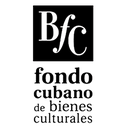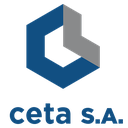Executive Secretary

XIII International Conference on Business Studies
CICE 2025
XI Conference on Business Economics
Abstract
This study analyzes the influence of intellectual capital on the competitiveness of micro, small and medium-sized enterprises (MSMEs) in the automotive sector in Tijuana, Baja California, in a context where innovation, knowledge management and organizational capabilities have become essential to survive in highly competitive global markets.
The objective of the study was to evaluate how the dimensions of intellectual capital - human capital, structural capital and relational capital - influence the competitiveness of MSMEs in the sector.
A quantitative approach with a correlational-exploratory design was used. The sample consisted of 140 randomly selected MSMEs, to whom a structured questionnaire with a Likert-type scale was applied. The data were analyzed using multiple linear regression and structural equation modeling (SEM).
The results indicate that intellectual capital has a positive and significant effect on competitiveness, with human capital being the dimension with the greatest impact.
It is concluded that strengthening knowledge management, fostering organizational learning and consolidating strategic external networks are key actions to improve the competitive performance of automotive companies in changing and demanding environments.
Resumen
Este estudio analiza la influencia del capital intelectual en la competitividad de las micro, pequeñas y medianas empresas (MiPyMEs) del sector automotriz en Tijuana, Baja California, en un contexto donde la innovación, la gestión del conocimiento y las capacidades organizacionales se han vuelto esenciales para sobrevivir en mercados globales altamente competitivos.
El objetivo del estudio fue evaluar cómo las dimensiones del capital intelectual —capital humano, capital estructural y capital relacional— influyen en la competitividad de las MiPyMEs del sector.
Se utilizó un enfoque cuantitativo con un diseño correlacional-explicativo. La muestra estuvo compuesta por 140 MiPyMEs seleccionadas aleatoriamente, a quienes se aplicó un cuestionario estructurado con escala tipo Likert. Los datos se analizaron mediante regresión lineal múltiple y modelos de ecuaciones estructurales (SEM).
Los resultados indican que el capital intelectual tiene un efecto positivo y significativo sobre la competitividad, siendo el capital humano la dimensión con mayor impacto.
Se concluye que fortalecer la gestión del conocimiento, fomentar el aprendizaje organizacional y consolidar redes externas estratégicas son acciones clave para mejorar el desempeño competitivo de las empresas del sector automotriz en entornos cambiantes y exigentes.
Palabras clave: Capital Intelectual, Competitividad, Capital Humano, Capital Estructural, Capital Relacional, MiPyMEs.
About The Speaker

Teresa de Jesús Flores Valverde

Discussion

 Gold
Gold
 Gold
Gold
 Gold
Gold
 Silver
Silver
 Silver
Silver